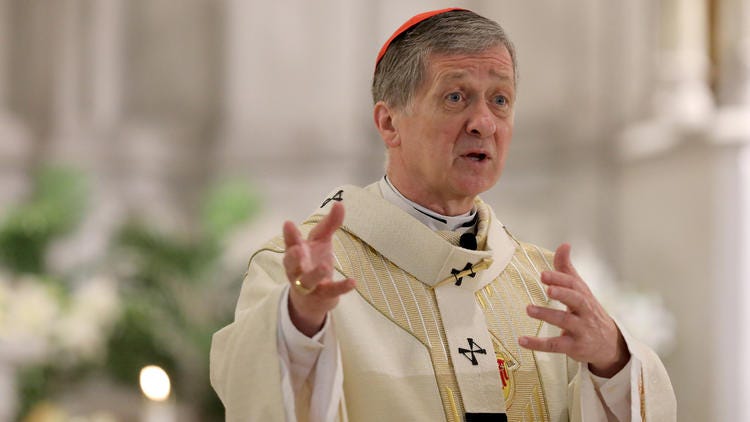Cardinal Cupich: Honouring Dissent, Confusing the Faithful
Cardinal Cupich’s decision to celebrate Senator Durbin’s career highlights a deeper crisis of clarity and fidelity within the Church.
In recent weeks, Cardinal Blase J. Cupich, Archbishop of Chicago, has come under intense criticism for plans to present a Lifetime Achievement Award to Senator Dick Durbin at the upcoming “Keep Hope Alive” fundraiser (3 November) hosted by the Archdiocese’s immigration ministry. Senator Durbin, a Catholic public figure, has long supported abortion rights in radical terms, including opposition to legislation protecting children who survive failed abortions, and has championed same-sex marriage. Pro-life advocates and several bishops have condemned the decision as deeply at odds with Church teaching and morally scandalous.
Bishop Thomas Paprocki of Springfield, whose diocese is also Durbin’s official residence, has publicly called the proposed award a betrayal of fundamental Catholic doctrine. He warned that honouring someone who has actively worked to expand and entrench the right to end innocent human life in the womb undermines the Church’s teaching on the sanctity of life and risks confusing the faithful. He pointed out that Durbin has been barred from receiving Holy Communion in Springfield since 2004 because of his public support for abortion. Paprocki cited both U.S. bishops’ statements and Chicago’s own archdiocesan policies, which prohibit honours for persons whose public actions openly oppose Catholic moral teaching.
Cardinal Cupich has responded. In a statement released on 22 September 2025, he defended the award, saying it is meant to recognise Senator Durbin’s contributions to Catholic social teaching in areas such as immigration, care for the poor, Laudato Si’, and peace. He also invoked the principle of the consistent ethic of life, arguing that the Church’s teaching on dignity cannot be reduced to a single issue, even one as grave as abortion. Cupich added that Durbin had purchased a condo in Chicago, registered in a parish, and “considers me to be his bishop,” meaning, in his view, that the cardinal has pastoral responsibility and thus dialogue is appropriate.
Taken together these statements frame the controversy not merely as a clash of personalities or politics but as a locus of deeper theological and ecclesial tension: between fidelity to Catholic doctrine, especially regarding life, and pastoral engagement, between clarity and ambiguity, and between upright moral witness and the navigation of plural public life.




